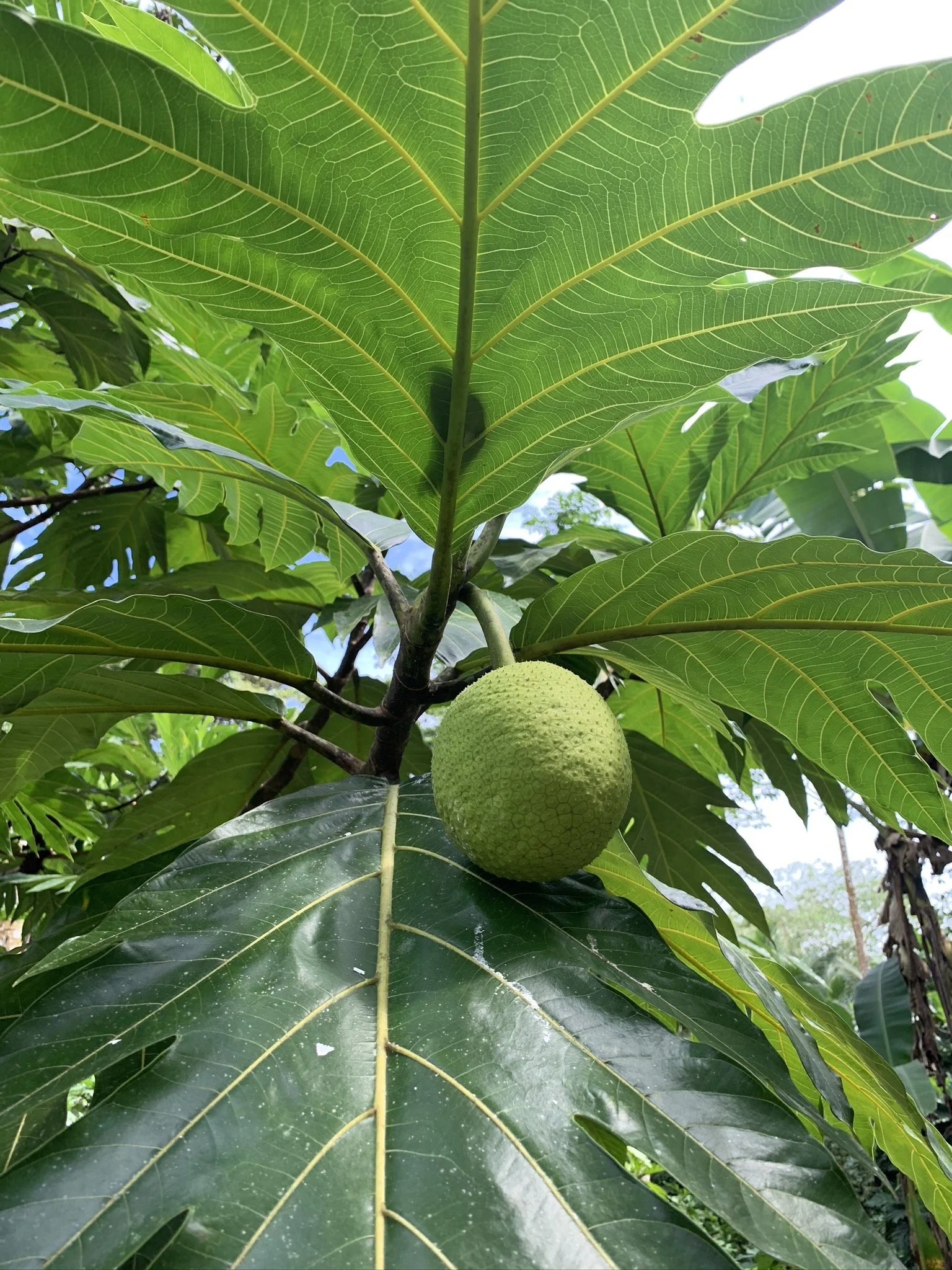Jungle Project is a regenerative enterprise dedicated to
trees, training, and trade.
Article Author, Paul Zink Co-Founder of Jungle Project & Jungle Foods
Through the promotion of its tropical agroforestry model, it establishes and researches underutilized crops like breadfruit, a tree native to the Pacific islands. Jungle Project works with smallholder farmers to build biodiverse supply webs, and supports farming communities, diversifies farmer production and income, and fosters the investigation and development of value-added products sourced from farmers’ edible forest gardens.
Our Mission
To partner with rural communities to regenerate livelihoods and the environment through agroforestry.
Our Impact Goal
To develop a regenerative agro-culinary network that supports agroforestry systems and education in the humid tropical zones for the manufacture and consumption of value-added products, that results in increasing forest areas, food sovereignty and community resilience in the face of climate change.
Short Video on Jungle Project
TREES
Planting traditional crops of high value potential, creating breadfruit based agro-forests.
TRAINING
Sharing best practices with farmers to optimize resilience, production & sustainability.
TRADE
Creating a reliable supply web between farmers and customers, plus an attractive rate of return for investors and collaborators.
Planting one breadfruit tree can feed a family for 70+ years. Breadfruit also requires significantly less labor and fewer inputs to cultivate than do crops like rice and wheat.
Breadfruit Environmental Benefits
Breadfruit is a key part of traditional Pacific agroforestry systems, many of which were replaced by monocultures. The fast-growing, high yielding perennial trees bear fruit in just 3 to five years and continue producing for decades. Breadfruit also requires significantly less labor and inputs than crops like rice and wheat. Rebuilding tropical agroforestry systems is key to improving soil and watersheds, reducing CO2, offering climate change resilience to communities, and providing food and shelter to pollinators and seed dispersers.
Breadfruit Growing Practices
Agroforestry is a resilient, efficient and sustainable method used by our ancestors to maximize the way we grow, share and consume a diverse variety of food in the same space. Jungle Project promotes regenerative agroforestry as the model for smallholder farmer’s growing method to have future breadfruit-based agroforestry plantations. For now, it sources from wild harvest trees (that grow on the edge of farms, rivers and gardens), sourcing with the help of local fruit gatherers and supporting both with a traceability process to identify where the fruit comes from. It then processes with three processing partners and the support of refrigerated transportation.
Breadfruit Social Impact
Researchers believe that the cultivation of Breadfruit trees in the tropics has the potential to drastically mitigate hunger and malnutrition. A percent of the revenue from each product sold goes directly to sustain the Jungle Project’s social program, which includes planting more trees, training more farmers, and connecting with more fair trade. Direct social impact benefits include economic support for smallholder farmers, using fruit that would otherwise become waste, nutrition support for farmers communities, and supporting farmers with organic certification processes.
Breadfruit Benefits
Breadfruit is a great source of complex carbohydrates, fiber, and minerals, including potassium, calcium, iron, magnesium, phosphorus, manganese, and zinc. It also provides B vitamins, niacin, thiamine, and Vitamin C. It is also gluten-free and a complete protein, containing all essential amino acids.
Key Uses for the flour: Use as a base for a wide range of gluten free dishes, like pancakes, pizza/pie crusts, lavash, cookies, crackers, pastas, thickening agent in sauces, and soups.
It can also substitute up to 15% of wheat flour to add its nutrients to the mix without affecting the sensorial results of the recipe. With around 65% starches, it works well with other flours with more density. It has a high absorbability quality to be considered. Since it has a very fine and fluffy texture, which increases i’s volume, handle delicately to avoid the flour from rising in the air. Store in a cool, dry place out of direct sunlight. Its shelf life is 18 months in original sealed packaging.
Jungle Project is literally growing a supply chain from the ground up.
They plant breadfruit trees with farmers in Costa Rica and manufacture innovative breadfruit products. Since day one, their mission has been to build a community-based agroforestry model: planting trees, training farmers, and producing healthy and delicious products. Check out their latest product in partnership with Patagonia, Breadfruit Cracker by Jungle Foods.
The perennial supercarb that nourishes you and the planet.
Article Author, Paul Zink Co-Founder of Jungle Project & Jungle Foods
Paul left NY for Costa Rica in 2007 with the dream of planting an edible forest. He has 12 years of experience in agroforestry systems and agriculture in the U.S., New Zealand, Spain, Japan, Nicaragua, Panama, Colombia, and Costa Rica. As collaborator at EARTH University and Project Director for Global Breadfruit, he promotes and plants breadfruit throughout Central and South America. Paul graduated from Antioch College with a degree in Cultural and Interdisciplinary Studies. He has experience in film production, logistics, and government relations.






